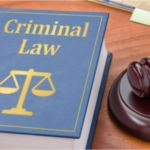Author Archives: Jay Butchko

How Stealing Someone Else’s Online Password Can Lead To Federal Criminal Charges
Every day you read stories about computer “hacking.” Some of these stories involve people improperly accessing computer systems to steal money or trade secrets from a large company. But even if you access someone’s personal computer without authorization just to look at their files, even if there is no commercial or profit motive, you… Read More »

Florida Liquor Store Owner Faces Jail Time For Concealing Cash Receipts From IRS
It is not uncommon for people to fall behind on their taxes or inadvertently miss a filing deadline. These are not crimes as such. But if the government believes that you have “willfully” attempted to “evade or defeat any tax” that you lawfully owe, you can be prosecuted–and if convicted, you could face up… Read More »

Supreme Court Unanimously Holds Police Cannot Search Private Homes Under “Community Caretaking” Exception
Police often provide “community caretaking” functions that are not necessarily related to law enforcement. For example, police often respond to calls to assist a person who may be missing or otherwise in distress. As a general rule, a police officer does not require any sort of warrant to perform these caretaking functions. At the… Read More »

How Answering A Craigslist Ad Can Land You In Federal Prison For 35 Years
Few crimes, short of those involving homicide, are prosecuted more harshly than child pornography. Law enforcement agencies often go to substantial lengths to ensnare and arrest individuals suspected of viewing, collecting, or distributing sexually explicit images of minors. In some cases, a defendant may have a viable “entrapment” defense, i.e., they would not have… Read More »

Can The Police Follow Me Into My House Just Because They Think I Did Something Wrong?
The police normally cannot enter your home without your permission or a warrant. But the courts have long made an exception for certain “exigent” or emergency circumstances. For example, if the police believe someone is about to destroy evidence–e.g., flushing illegal drugs down the toilet–that can justify a warrantless entry into a home. Supreme… Read More »

Can A Police Officer Commit Me To A Mental Hospital?
The Baker Act is a Florida law that allows a police officer to order the involuntary commitment of an adult or child for a “mental health examination,” which can last up to 72 hours. The Act was designed to help those who suffer from a genuine mental illness obtain help before they hurt themselves… Read More »

Do Prosecutors Need To Prove I Knew About The Specific Illegal Drugs That I Allegedly Possessed?
There are numerous federal and state laws that prohibit the possession of certain drugs. The federal statute states it is unlawful to “knowingly or intentionally” possess with intent to “manufacture, distribute, or dispense, a controlled substance.” The phrase controlled substance refers to a drug listed in one of five categories (or “schedules”) as having… Read More »

How Civil Rights Laws Also Protect Your Contractual Rights
Civil rights laws do not just protect you from racial discrimination by the government. Many of these laws also apply to private parties as well. For example, 42 U.S.C. § 1981 is a federal statute that guarantees the equal rights of all people to “make and enforce contracts.” This means that if an act of… Read More »

How Do Grand Juries Work In Florida?
There are two legal mechanisms by which a person can be charged with a crime in Florida: information or indictment. An information is a charging document issued by a prosecutor, i.e., a Florida State Attorney. An indictment, on the other hand, is issued by a legal body known as the grand jury. A grand… Read More »

Can A Judge Ask If You Waive Your Right To Testify?
Under the Fifth Amendment to the United States Constitution, you cannot be compelled to “be a witness against” yourself in a criminal case. In other words, you cannot be forced to testify at your own criminal trial. Of course, you are free to waive that right and testify, but that decision must be made… Read More »

What Is Money Laundering?
The phrase money laundering is commonly associated with large-scale organized crime. But anyone can face a money laundering charge, even when the underlying criminal activity is relatively small. Indeed, many people are not even aware of what activities qualify as money laundering until they are actually charged. Transforming Criminal Process Into “Clean” Money The… Read More »

Supreme Court Sides With Suspended Cheerleader Who Cursed On Snapchat
Social media makes it possible for us to communicate with our friends, family, and even complete strangers on a continuous basis. Fortunately, we also have robust protections for freedom of speech in this country, which ensures the government cannot punish us for making critical–even vulgar–statements online. Of course, that has not always stopped certain… Read More »

U.S. Supreme Court Holds Tribal Police May Detain Non-Tribal Suspects For Apparent Violations Of Federal And State Laws
Florida is home to a number of federally recognized Native American tribes and Indian reservations. As the U.S. Supreme Court has explained, Native American tribes are considered “distinct, independent communities” that exercise “limited” sovereignty within their respective reservations. This includes the ability to regulate their own domestic affairs and maintain their own police forces…. Read More »

Can The Police Legally Track Your Car Using GPS Devices?
GPS and related technologies have made it much easier to track the location of people and objects at all times. Indeed, Apple recently made a big splash when it released its “Air Tags,” which are small tracking devices a user can attach to their key chain, suitcase, or any other item they want to… Read More »

Supreme Court Holds Lawfully Accessing A Computer Database For An “Improper Purpose” Is Not A Crime
Computer hacking has been a known problem since the advent of computers themselves. When a person improperly gains access to a computer system, they violate federal law, specifically the Computer Fraud and Abuse Act (CFAA) of 1986. The CFAA also makes it a crime to “exceed[] authorized access” to a computer system. In other… Read More »

What Constitutes “Wire Fraud” Under Federal Law
White collar criminal charges can do more than affect your public reputation and career. If convicted, you can receive serious prison time, especially if you are tried in federal court. And one of the most common federal white collar crimes is wire fraud. Wire fraud basically refers to the use of any method of… Read More »

When Can the State Civilly Commit a “Sexually Violent Predator”?
Florida law makes it possible for prosecutors to seek civil commitment of a person believed to be a “sexually violent predator.” Even if such a person has already served any applicable criminal sentence, they can still be committed if prosecutors can show they have some personality disorder or mental health issue that makes them… Read More »

Can I “Reassert” My Right to Remain Silent During an Interrogation
When you are arrested or interrogated by the police as a criminal suspect, you have the right to remain silent. This right ensures that you are not compelled to make incriminating statements that could be used against you at trial. Even if you initially waive this right and talk to the police, you are… Read More »

Does “Sexual Activity” with a Minor Require Physical Contact to Be Criminal?
Sex crimes involving children often carry some of the harshest penalties in our legal system. For example, the federal sentencing guidelines call for a five-level enhancement when a defendant is convicted of a sexual offense involving a minor and has also “engaged in a pattern of activity involving the sexual abuse or exploitation of… Read More »

What Happens When a Juror Lies About Their Background? Can You Get a New Trial?
The right to a jury trial is an essential legal protection for anyone charged with a crime in Florida. It has been long understood that jurors should be impartial and “indifferent” to the case at trial. To put it in simpler terms, a juror should not harbor or exhibit any personal bias against the… Read More »

Can Police Use a Pre-Recorded Interview with a Victim as Evidence Against You at Trial?
The Sixth Amendment to the U.S. Constitution guarantees every criminal defendant the right to “confront” the witnesses against them. In plain terms, you have the right to cross-examine in court any witness who offers testimony on behalf of the prosecution. This is why, as a general rule, the prosecution cannot introduce hearsay that has… Read More »

What Is a Judgment of Acquittal?
In any criminal case, the prosecution must prove all elements of the alleged offense beyond a reasonable doubt. If the evidence is insufficient to prove any element, the defendant has the right to ask the court for a judgment of acquittal (JOA). Basically, this means the judge can find that no rational jury could… Read More »

Supreme Court Pulls Back on Constitutional Protections for Juvenile Offenders
The United States is the only country on Earth that allows individuals to receive sentences of life imprisonment without the possibility of parole for crimes committed as juveniles. Although several individual states have banned this practice in recent years, Florida and many other states keep “juvenile life with parole” on their books. And due… Read More »

How Does the State Prove the Value of Stolen Property in a Theft Case?
If you are familiar at all with criminal law, you probably have heard the phrase “beyond a reasonable doubt.” This is the legal burden of proof that a prosecutor must meet to secure a defendant’s conviction. This standard applies to every element of alleged crime. And depending on the nature of the charge, there… Read More »

Can I Ask to Move My Criminal Trial Due to Negative Media Coverage?
Every criminal defendant has the right to a trial by an impartial jury. “Impartial” basically means that the jurors have not already made up their mind about the case before the trial even starts. For this reason, it is important to screen out any potential jurors who may have learned about the case from… Read More »
